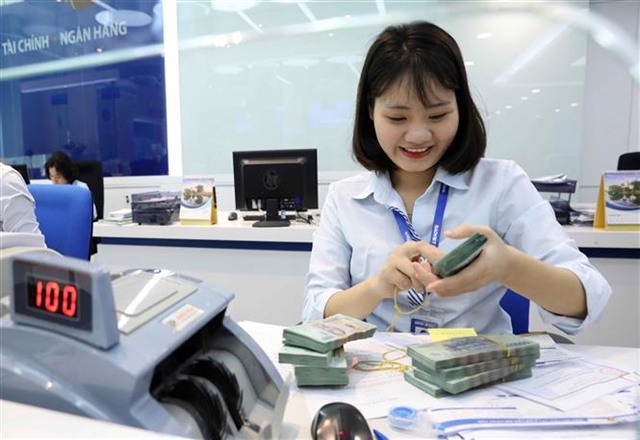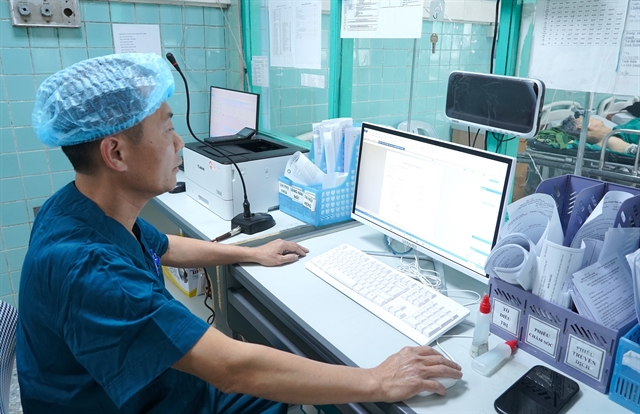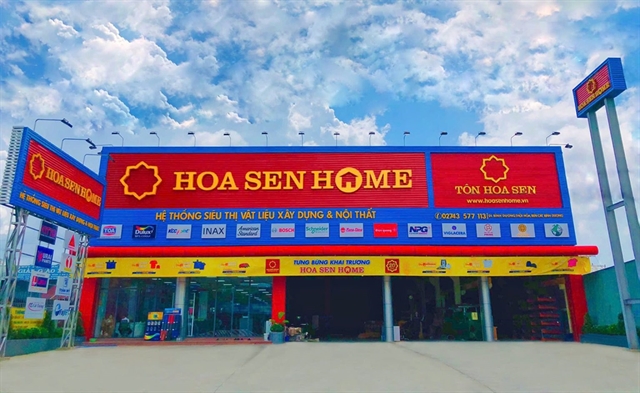 Economy
Economy

State-owned enterprises can apply the book building method at their initial public offering (IPO) from the beginning of 2018, according to a recently issued decree.
 |
| State-owned enterprises can apply the book building method at their initial public offering (IPO) from the beginning of 2018, according to a recently issued decree.— Photo nhandan.com.vn |
HÀ NỘI — State-owned enterprises can apply the book building method at their initial public offering (IPO) from the beginning of 2018, according to a recently issued decree.
Under Decree 126/2017/NĐ-CP on SOE equitisation, Prime Minister Nguyễn Xuân Phúc asked the Ministry of Finance to issue detailed instructions for implementing this method.
Book building, a systematic process of defining the selling price at an IPO upon demand from institutional investors as they indicate the expected number of shares they want to buy and the prices they are willing to pay, is popular worldwide but new to Việt Nam.
There will now be four methods for launching an IPO - auction, underwriting, private placement and book building.
The new method is expected to make SOE equitisation attractive to strategic investors as the selling price is based upon a study of the market demand and negotiations with large buyers from the start.
The new decree, which replaces Decree 59/2011/NĐ-CP, dated July 18, 2011; Decree 189/2013/NĐ-CP, dated November 20, 2013; and Decree 116/2015/NĐ-CP, dated November 11, 2015, is targeted at ensuring transparency in SOE equitisation and hastening listing on the exchanges.
Accordingly, when making the IPO documents, the enterprise must at the same time prepare documents for registering at the Việt Nam Securities Depository (VSD) or for stock trading, if eligible.
Documents for registering at VSD or stock trading on the unlisted public company market must be completed within 90 days from the IPO.
This regulation aims to speed up the listing of SOEs following their IPOs.
In addition, it states three methods for equitisation - keep State capital at SOEs intact and issue shares to increase charter capital, sell part of State capital at SOEs or combine State stake sale with additional share issuance, and sell entire State stake or combine entire State stake sale with additional share issuance.
The decree also provides detailed instructions for evaluating an SOE’s value, including land use right value and business advantage value.
Business advantage value includes brand value and development potential value.
This regulation is expected to prevent cases similar to the privatisation of Việt Nam Feature Film Studio, during which its brand value was determined to be zero.
The new decree states that the State will not finance the equitisation of SOEs, including enterprises in which the State still holds more than 50 per cent stake following equitisation.
Forty-four SOEs are planned to be equitised in 2017 and 127 in the 2017-20 period.
As of October, the finance ministry’s statistics showed that the equitisation plans of 38 SOEs which have total assets of more than VNĐ81 trillion (US$3.56 billion), were approved. State stake in these SOEs was worth nearly VNĐ30 trillion. — VNS




